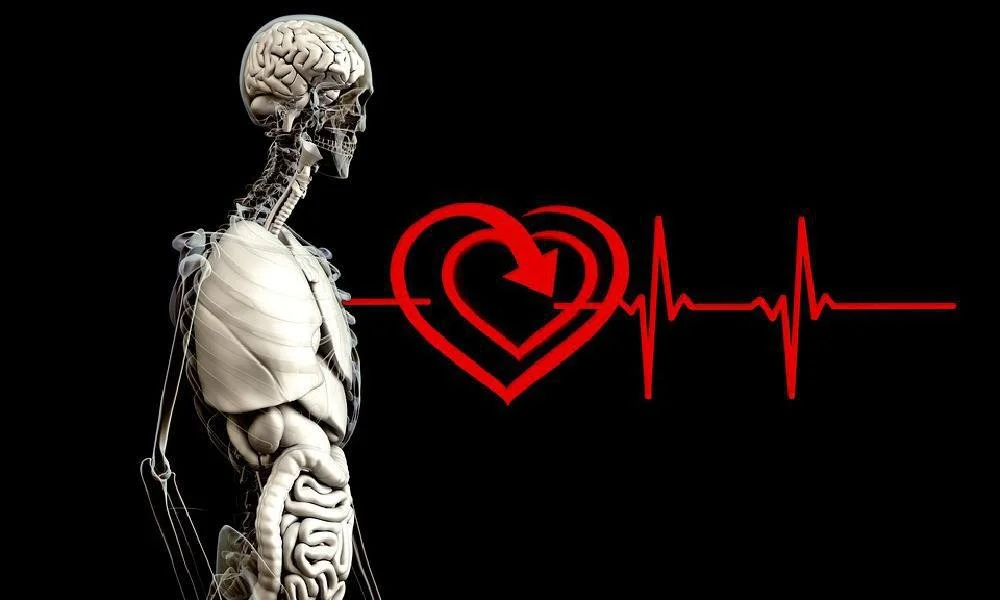Who is Most at Risk for Stroke? The Answer May Surprise You
Our cardiovascular system is an intricate network of blood vessels that continuously delivers nutrient-rich blood to and from the heart. This system is one of the core structures of human physiology. Its health and well-being is the cornerstone of the proper working and balance of our body. When optimally functioning, we are much more likely to experience vigorous physical health and energy levels, living an active and fulfilling lifestyle, even at advanced ages.
Unfortunately, this homeostasis is often interrupted by unhealthy dietary or lifestyle choices, acute and chronic stress, or genetic and hereditary causes. It can lead to the development of cardiovascular diseases, like stroke, the leading cause of death in the U.S. and many other first-world countries. Men and women being affected equally.
These statistics are tragic. Over 600,000 Americans die each year from preventable cardiovascular disease such as a stroke. Integrative medicine utilizes a preventive approach to diagnose patients with cardiovascular diseases and to help reverse these disease.
What Is a Stroke?
A potentially fatal type of cardiovascular disease, strokes occurs when a sudden blockage develops within the brain, halting the flow of oxygen-rich blood and causing irreversible brain cell death. Stroke symptoms may vary depending on the area of the brain the blockage effects. Symptoms can vary from weakness or paralysis of the face or limbs, often on one side of the body. It may be paired with an inability to walk, speak, or blurry vision.
Stroke is a serious medical emergency that requires immediate attention to prevent long-term problems such as physical disability or death. Complete recovery from a stroke is difficult and quite unlikely. Understanding what may put you at a higher risk of developing a stroke is crucial.
What Factors Put You at Risk for Having a Stroke?
A stroke usually occurs as the result of a combination of multiple health risks. It is imperative to eliminate these risks as much as possible, since the culmination of these factors increases the likelihood of experiencing a stroke.
The most common risk factors are the following:
high blood pressure
Diabetes or Pre-Diabetes
High ferritin level and/or other elevated inflammatory markers
Heart disease
Smoking
Family history of cardiovascular disease
Men are at a higher risk of developing a stroke at a younger age than women. Men are more likely to experience death with a stroke.
Being on birth control pills or hormone replacement (i.e, estrogen, testosterone)
Why Is Stroke Prevention Important?
Since the result of suffering a stroke is devastating, it is vitally important to emphasize that prevention is the only optimal approach. While post-stroke treatment are certainly possible and required, it is desirable to prevent the occurrence of a stroke altogether.
Fortunately, cardiovascular disease can be easily avoided. The disease progression can be stopped before escalating to the point of experiencing a stroke. Even though some factors, such as genetic risk factors or age cannot be altered, a complete lifestyle change will usually eliminate an imminent danger and prevent the occurrence of a stroke. Taking control of one's lifestyle choices is the central focus of integrative medicine. Integrative physicians are dedicated to improving your health by utilizing the combination of conventional and holistic medicinal approaches.
How Do Integrative Medicine Physicians Approach Stroke Prevention?
When diagnosed with one or more types of cardiovascular disease, talking to your integrative primary care physician becomes essential. It is crucial to determine the root cause of your heart disease. An immediate and highly personalized treatment plan must be designed which focuses on preventing the condition from worsening. Integrative medicine offers a large selection of scientifically proven contemporary and alternative treatment options to treat heart disease, decrease your stroke risks, and to relieve any associated physical symptoms and discomfort.
As in the case of many chronic conditions, cardiovascular disease also requires a complete rethinking of your diet, eliminating empty calories, excessive carbohydrates, and the overconsumption of unhealthy fats that could further clog your arteries. Aim to replace these foods with fresh leafy green vegetables, fruits, legumes, non-wheat whole grains, and seeds. They are full of nutrient and protein rich immune boosting properties. Getting sufficient sleep every night and being physically active most days are crucial to losing excess weight, improving your circulatory health, and feeling good. Your stroke risk can be dramatically decreased in weeks to months with the right lifestyle changes and medical guidance.
Aside from the aforementioned dietary changes, make sure you avoid using nicotine-related products. Second-hand smoke is deadly for the heart and blood vessels, elevating your risk for stroke.
Your integrative medicine physician can also help you develop healthy stress management strategies. Incorporating relaxation techniques such as meditation, breathing and mindfulness-based exercises will help support your mental and emotional well-being.
AUTHOR
Dr. Payal Bhandari M.D. is one of U.S.'s top leading integrative functional medical physicians and the founder of SF Advanced Health. She combines the best in Eastern and Western Medicine to understand the root causes of diseases and provide patients with personalized treatment plans that quickly deliver effective results. Dr. Bhandari specializes in cell function to understand how the whole body works. Dr. Bhandari received her Bachelor of Arts degree in biology in 1997 and Doctor of Medicine degree in 2001 from West Virginia University. She the completed her Family Medicine residency in 2004 from the University of Massachusetts and joined a family medicine practice in 2005 which was eventually nationally recognized as San Francisco’s 1st patient-centered medical home. To learn more, go to www.sfadvancedhealth.com.

